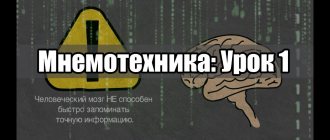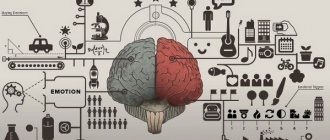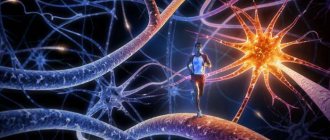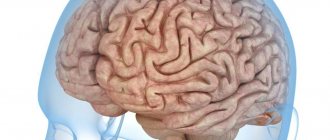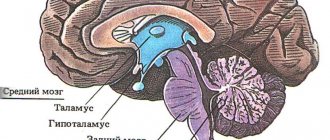The brain, like muscles, can adapt to stress. And those things that you do often become routine. How to train him? The main rule is to give the brain unusual, new information. Thanks to this, new neural connections will be formed, and the brain will develop. Here are some exercises you can use to do this.
Sweet doping: how sugar affects brain function
Change your image and make a rearrangement
The brain gets used to the environment - the arrangement of furniture in the house and objects on the desktop, the reflection in the mirror and a set of familiar clothes. It is not necessary to carry out major repairs and radically change the appearance. It is enough, for example, to periodically make small redevelopments and, in order to “shake up” perceptions, try new things in clothes.
Photo: istockphoto.com
Test your multitasking
Online junk is just part of one big problem: multitasking. Modern culture encourages it and even forces us to multitask (for our own good). But have you ever seen an employer who needed someone with excellent multitasking skills? Hardly. Therefore, the benefits of multifunctionality are vague and only in our heads. The main thing to achieve is complete concentration on one action. This way, even if the task is incredibly boring, you will still feel much happier.
How to get rid of multitasking? First, try to develop the habit of noticing that you are doing several things at once. And, just like with the internet, discipline yourself to take things one at a time.
Engage your sense of smell
Have you been using the same perfume for years? It's time to change that! A good way to get your brain working is to rid it of the “aromatic” routine. The sense of smell is an important channel for the perception of reality. You also need to periodically add something unusual to it, be it new perfumes or spices when cooking.
Biohacking: is it possible to hack your body and gain eternal youth?
In order to use the capabilities of your brain at 100%, follow these tips.
1. Play sports.
It is believed that with greater physical activity, a person’s brain develops better. Scientists at the Salk Institute for Biological Studies in California found that mice running on a spinning wheel had twice as many cells in the area of the brain responsible for learning and memory.
2. Train your thinking.
It's not just physical exercise that's important. You can develop different areas of your brain by making them work.
3. Ask “Why?”
Our brains are predisposed to curiosity. Allow yourself to be curious. The best way to develop curiosity is to constantly ask the question “Why?” Make it a new habit (at least 10 times a day).
4. Laugh more.
Scientists say that laughter is good for our health. During this process, endorphins are released and this helps us relieve stress. In this way, laughter can recharge our brain.
5. Eat fish.
The oil found in walnuts and fish has long been considered beneficial only for the heart. But a recent study found that it is also beneficial for the brain. Not only does the air circulation system that supplies oxygen to the head improve, but the function of cell membranes also improves.
6. Develop your memory.
The brain is a memory machine. Take an old photo album or school diary. Spend time with your memories. Let your mind reflect, remember. Positive emotions from memories will help you cope with problems.
7. Eat right.
Can unhealthy fats make you stupid? Researchers at the University of Toronto answered this question. They put rats on a diet that reduced their fat intake, causing the rodents to experience poorer functioning of the parts of their brains responsible for memory and spatial perception.
8. Solve the riddle.
Some of us love mosaics, some crosswords, and some of us love logic riddles. These are all very good ways to activate your brain and keep it active. Solve the riddle for fun, but by doing it, know that you are training your brain.
9. Mozart effect.
A decade ago, psychologist Francis Roscher and his colleagues made a discovery. It turns out that listening to Mozart's music improves people's mathematical thinking. Even rats completed mazes faster and more accurately after listening to Mozart than after listening to noise or the music of minimalist composer Philip Glass.
10. Improve your skills.
Routine activities such as sewing, reading, drawing and crossword puzzles are important. Challenge yourself to do these things in new ways to improve your skills.
11. Reduce the amount of alcohol.
A study of 3,500 Japanese men found that those who drank small amounts of alcohol had better cognitive function than those who did not drink at all. But, unfortunately, as soon as you drink more than you should, your memory immediately deteriorates.
12. Play.
If you have free time, play. Make time for games. Play cards, video games, board games. It doesn't matter what you play. The game will improve your mood and brain function. This will teach your brain to think strategically.
13. Sleep with a pen and paper.
Reviewing key information before bed will improve its retention by 20-30%. You can keep a book near your bed to read before bed if it does not tire you too much. And be sure to keep a pen and notepad next to your bed.
14. Concentration.
Concentration can improve brain function. But the "conEnergy thieves" include mint, cypress and lemon. For relaxation you will need geranium and rose. A few drops of oils in your bath or diffuser will be sufficient.
20. Surround yourself with inspiration.
Connect with people who inspire you. Read magazines on various topics. Open up new possibilities. Find new solutions to problems. No matter how old you are or what you do, your brain just needs exercise.
Use other routes
Home – work – home. This route may remain unchanged for years. The result is that the brain goes through it on autopilot, not getting involved in the process at all. Try to get to the office in different ways and thoroughly explore the area where you live, walk where you have not been before. And before traveling to a new place, carefully study the maps in advance and try to get to the desired point without looking at the map application and navigator tips.
Photo: istockphoto.com
Train your mindfulness
The most memorable feature of Sherlock Holmes is his incredible attentiveness. The ability to notice details that other people cannot. And, as Maria Konnikova says, the basis of how Holmes solves crimes is inaction. Often he just sits on a chair and does nothing. The eyes are closed and the body is motionless, unless he is playing the violin. This is what helps Holmes to be concentrated and attentive to all the little things.
How to start thinking like Sherlock Holmes? According to Maria Konnikova, all you need to do is start imitating the detective. Take 10-15 minutes every day to sit down and do nothing. Concentrate on your own breathing, on each inhalation and exhalation. This exercise will help develop your attention. Imagine that you are training a muscle and with each session it becomes bigger and stronger.
Don't think that doing all this is difficult or impossible. Start with small habits and move on to big changes. Lack of sleep, multitasking and internet junk make us less productive, creative and happy. Try to use yourself to the fullest on both mental and physical levels.
Read color words
The names of the colors are written on the picture for this exercise (the name and color of the word do not match). You need to name the color, and not read the text. This is more complicated than it might seem at first glance. Try it!
How to develop quick thinking in football? Improving skills for progressive play
Stop eating internet trash
You've probably wondered how the Internet affects our brain? Doesn't the Network make us addicted, turning into a kind of drug? Status on Facebook, email, Twitter, interesting article, and so on in a vicious circle. Maria Konnikova says that the main problem of Internet users is distracted attention. We constantly have to switch from one activity to another, and this prevents us from focusing on important things.
How to get rid of this? Set a set of rules for yourself: half an hour of email, half an hour of Twitter, and so on. You can do this yourself, but if you know that willpower may not be enough, use auxiliary means.
Asian ginseng
A legend of traditional Chinese medicine, ginseng root is recommended for almost any health problem. The pectins, tannins, glycosides, polysaccharides, resins, essential oils, alkaloids, vitamins and microelements contained in it are in amazing harmony, and together have a stimulating, rejuvenating and tonic effect on the body.
Preventive use of ginseng is relevant for reduced immunity, loss of strength after a serious illness, chronic fatigue syndrome, depression, endocrine and digestive disorders, and sexual weakness in men. Ginseng is known to stabilize heart rate and normalize blood pressure. This natural medicine has no contraindications or side effects, however, it is a very powerful stimulant and tonic, so it is recommended to take ginseng in a dosage of no more than 200-500 mg twice a day.
Neurofeedback training
One of the promising methods is neurofeedback training. This is a procedure that allows you to learn to control the activity of your own brain. It is based on the principle of biofeedback. During neurofeedback training, small electrical signals from the brain are measured using electrodes attached to the scalp and converted into sound and images using software. That is, a computer program creates a real-time visualization of the bioelectrical activity of the brain.
How does this happen
The doctor gives instructions - and if the brain rhythms indicate a transition to the desired therapeutic state, then the program on the screen changes the image, sound and vibration intensity of the tactile sensor. Feedback facilitates the process of learning physiological control, and the computer program makes available information that would normally be imperceptible. If necessary, the doctor uses additional techniques to control the emotional state in order to enhance the effect of neurofeedback training.
It turns out that you can influence the rhythms of the brain interactively by tracking and recording your sensations. As you continue training and consolidate the desired feeling of relaxation, you acquire the skill of moving into the necessary therapeutic state on your own at any time.
Source: https://www.beicon.ru/beauty/trenirovki-dlya-mozga-kakie-oni-bivayut-i-zachem-oni-nuzhni-soveti-specialista
Back to list
Environment
First of all, air.
In addition to the nutrition that we deal with every day (remember Parerto’s rule that 20% of the reasons give 80% of the result?), it is very important that the air we breathe is full of oxygen. Therefore, you need to ventilate the premises, sleep with an open window if possible, and periodically do deep breathing exercises. Secondly, order. Oddly enough, it is the order outside that allows you to put things in order inside. At the same time, I call order the state of surrounding objects and people when the situation is not annoying. Sometimes, however, aggression is hidden - let's say that the presence of order is determined by whether you want to be in a certain environment or not.
Next, this is the number of distracting and irritating factors, and the number of relaxing and inspiring ones. Everyone has their own, but usually the first group includes excess noise, unpleasant odors, uncomfortable furniture, randomly located objects in the field of view, too bright or dim light, too bright or faded colors around, and so on. It should be noted that the brain knows how to adapt to constantly existing factors and ignore them - like noise from a window. And for others, like repairs behind a wall, it’s very difficult for him to adapt. And as for inspiring factors, everyone has their own. In general, you need to keep this in mind and strive to create an environment around yourself that makes it easy to concentrate
Living supercomputer
Brain functions are often compared to the work of a computer, although this comparison is very conditional. Our living “computer” consists of approximately 100 million neurons. According to the director of the Institute of the Human Brain, Academician Svyatoslav Medvedev, in order to describe the interactions between them, you will need a computer with a memory comparable in volume to the number of particles of the universe visible to us.
Information travels in the brain at a speed of 1400 m/sec. The computer does this much faster—in fact, at the speed of light. However, in terms of energy efficiency, it is an absolute outsider. The energy consumption of the brain is comparable to the power of a car battery, while at the same time tens of kilowatts are spent just on cooling powerful computers.
According to various estimates, our brain is a real Terra Incognita, studied at best by 15%. It remains a mystery how neurons are organized when the brain works so slowly, while its efficiency leaves far behind all the achievements of the most modern computers.
L-tyrosine
Another useful amino acid - L-tyrosine - is included in the protein composition of all tissues and organs and is produced from phenylalanine. Without a sufficient amount of this amino acid, adequate synthesis of the hormones adrenaline and norepinephrine, as well as the main neurotransmitter, dopamine, is impossible. To provide yourself with L-tyrosine, you can either significantly increase your consumption of seafood, fish, meat, legumes and grains, or purchase a ready-made dietary supplement.
L-tyrosine is very useful not only for those people whose professional activities are associated with strong mental stress and prolonged concentration. This amino acid significantly increases the threshold for fatigue, so it is also extremely useful for those who are engaged in physical labor. L-tyrosine prevents the development of endocrine diseases, maintains the health of the thyroid gland, adrenal glands and pituitary gland. However, if you already suffer from a similar disease and are taking hormonal medications, be sure to consult with your doctor about L-tyrosine to avoid unwanted drug interactions.
Rhodiola rosea
Rhodiola grows in the north-west of the Eurasian continent, and has been used by Scandinavian peoples for medicinal purposes since ancient times. This plant contains substances that reduce the concentration of the enzyme monoamine oxidase. Thus, Rhodiola rosea regulates the balance of the neurotransmitters serotonin and dopamine in the human body. Regular intake of Rhodiola extract improves performance, promotes high concentration and speed of processing visual and auditory information.
The Rhodiola plant is actively used in cosmetology - its extract is added to anti-aging creams to stimulate cellular renewal and reduce the number of wrinkles. And taking Rhodiola in the form of a dietary supplement to food in a dosage of 100-1000 mg per day is recommended for all mature and elderly people who complain of fatigue, memory impairment and inability to concentrate for a long time.
Ashwagandha
Another healing plant that we became familiar with thanks to the Indian health science of Ayurveda is called ashwagandha. Translated from Sanskrit, this word means “horse smell,” and this name is explained by the fact that cattle like to graze in the thickets of ashwagandha, and the medicinal herb is strongly associated among local residents with horse health and endurance. Ashwagandha is sometimes called the Indian version of ginseng, however, the herb is much more accessible and therefore cheaper.
Local healers recommend ashwagandha to people engaged in hard work (and these are the majority in rural India), as this medicinal plant helps restore strength and save oneself from raging epidemics. Ashwagandha contains essential oils, glycosides, polysaccharides, terpenes and phytoncides, natural antibiotics that help the immune system cope with diseases.
After ashwagandha entered the European pharmaceutical market, it began to be positioned as a natural tonic and brain stimulant, as well as a means to improve male sexual function. There are plenty of antibiotics and immunomodulators in Europe, but there are very few plants that have such a pronounced positive effect on the brain and nervous system. Taking ashwagandha extract is recommended for students and mental workers, athletes and elderly people who complain of memory impairment.
